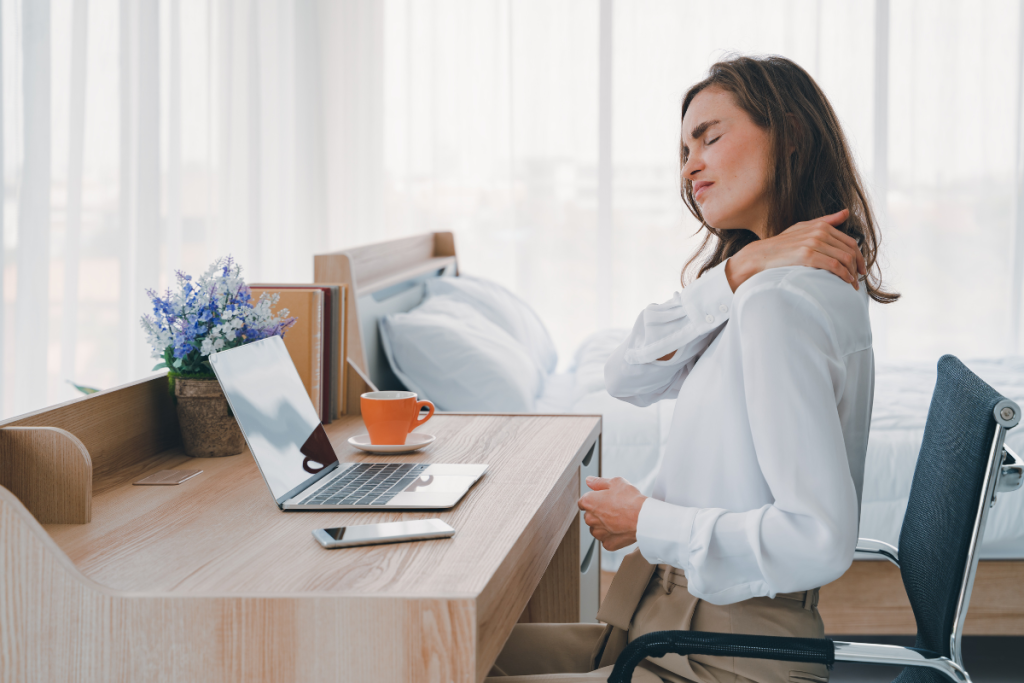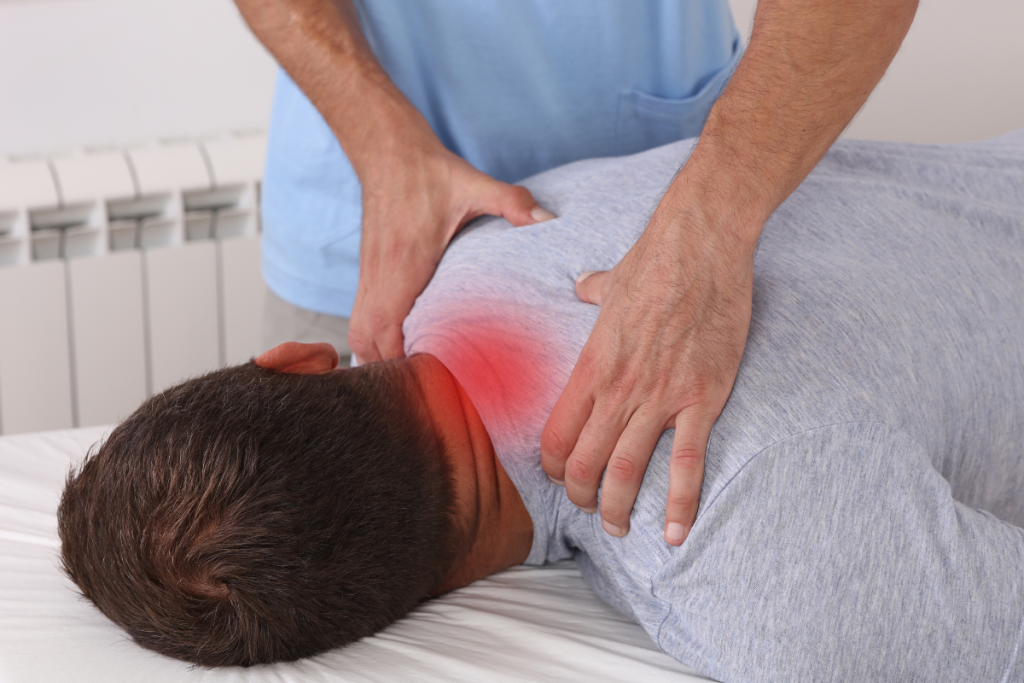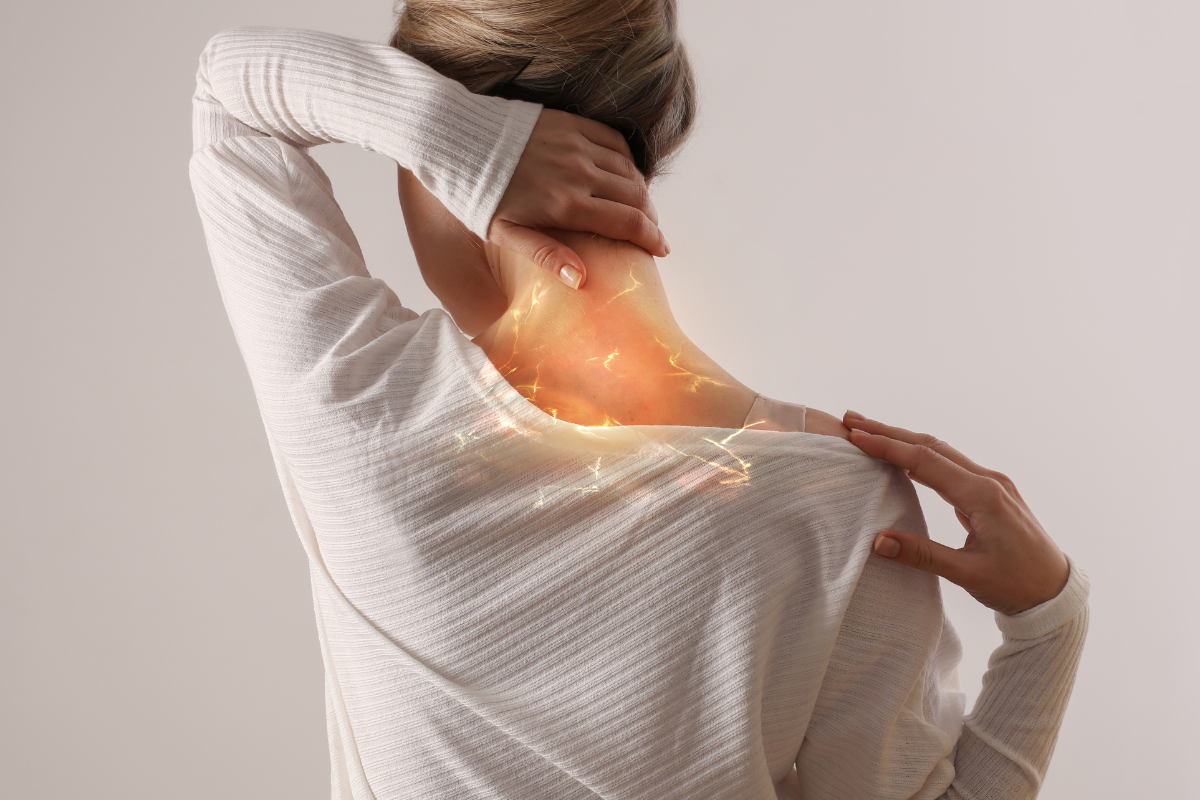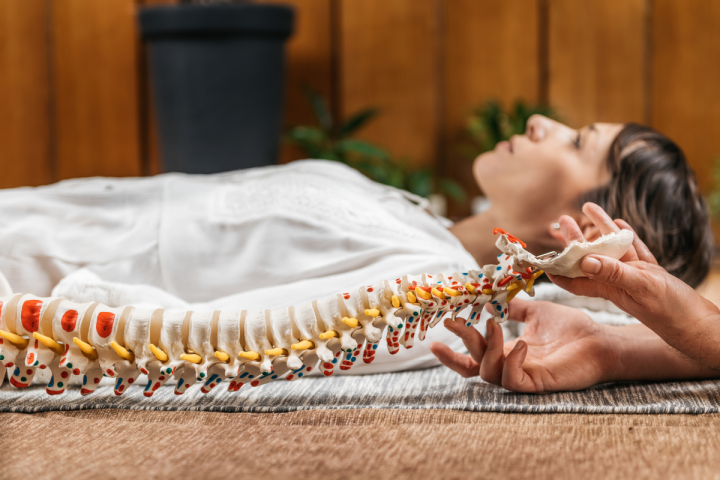You know that feeling of sharp pain in the neck area? It can have a variety of sources. Sometimes the nature of the pain is short-lived and results from a sudden or abnormal movement of the head. In other cases, persistent pain can signal a serious medical condition. If neck pain persists for a long period of time, it is worth consulting a doctor or physiotherapist. A key element in treatment is pharmacological therapies and physiotherapy. In cases of more advanced neck pain, surgical intervention may be required. Cervical back pain is an ailment that affects many people. There are many sources of this pain and ways to relieve it. Read more!
What are the causes of neck pain?
Depending on the specific location of the neck pain, there may be different sources of discomfort. Pain in the back of the neck is most commonly associated with the cervical region of the spine. Each of these causes may have a different clinical course and require different methods of diagnosis and treatment. Causes of such pain may include:
- injury, infection or inflammation in the cervical spine area,
- spinal degeneration,
- abnormal posture and associated conditions such as scoliosis, lordosis and kyphosis,
- neck discopathy,
- torticollis,
- intervertebral disc herniation in the cervical region, which can compress the nerves. Risk
- the occurrence of neck pain increases with age and with frequent heavy lifting,
- fibromyalgia,
- rheumatoid arthritis,
- stenosis, a narrowing of the space in the cervical spine due to changes in the
- degeneration, which can also lead to nerve compression,
- bone fractures or ligament ruptures in the cervical spine as a result of trauma,
- tumours and neoplastic lesions.

Degeneration of the cervical spine
Many patients report complaints of neck pain, often suggesting that degeneration of the spine may be the source. However, this diagnosis is not always accurate. These degenerations can affect both the intervertebral disc and the intervertebral joints. Unfortunately, patients often try to diagnose themselves on their own or via the Internet, which can lead to errors.
Symptoms associated with cervical spine degeneration can manifest in a variety of ways. Typical symptoms include restricted neck mobility, particularly in left and right rotation and twisting of the head. These limitations may also include bending, straightening and lateral head inclination. It is worth remembering, however, that neck stiffness may not always be clearly related to degeneration, but may be the first signal that something is wrong.
Neck pain due to discopathy
Cervical spinal discopathy occurs when an intervertebral disc bulges or forms a herniated disc, leading to compression and irritation of the spinal roots. This manifests itself in the patient with intense neck pain that often radiates towards the hands. Accompanying symptoms include weakness of muscle strength and sensation in the upper limbs, as well as restricted head mobility. Depending on the location of the lesions, the pain may occur on the right or left side of the neck.
If the discopathy is of minor severity and pain in the cervical region, therapy focuses mainly on the use of physiotherapeutic methods and pharmacotherapy. In advanced cases of this disease, treatment consists of surgical removal of the affected intervertebral disc.
Neck pain after sleeping
When you experience neck pain upon waking up, make changes!
- Pay attention to your sleeping position. Try to position your spine so that it remains in alignment. Avoid putting your hand under your head as this can put pressure on the nerves in the shoulder area. If you are in the habit of putting your hand under your head, consider changing your pillow; perhaps it is too low.
- Make sure your mattress and pillow are properly sized. The mattress you sleep on should be suitable for your weight and adequately support the different parts of your spine. If you use a pillow, choose one that keeps your cervical spine aligned with the rest of your spine. Sometimes it is better to choose a firmer and anatomically shaped pillow.
- Before bed, relax your muscles with a warm bath or hot shower, especially if you have had a stressful day.
- Find time to relax after a stressful day. There are many relaxation methods such as walking, yoga, meditation or Schultz autogenic training techniques. Sometimes 15-20 minutes can be enough to make you feel better.
- Introduce regular physical activity into your day, especially if you lead a sedentary lifestyle or work at a desk.

Neck pain - let's cure it together!
If you are experiencing pain in the cervical spine, don't leave it unattended. Physiotherapy and spinal rehabilitation can be key to alleviating discomfort and improving your quality of life. W Rehabilitation Centre MTS Holistic Therapy always strives to apply the latest medical advances and our treatment techniques are always individually tailored to the needs of each patient. As a result, we achieve maximum effectiveness in treating a variety of conditions and reducing pain. We work with the aim of improving your health and comfort. Our approach is based on the individual patient's needs and our therapies are designed to effectively relieve pain and restore function.




